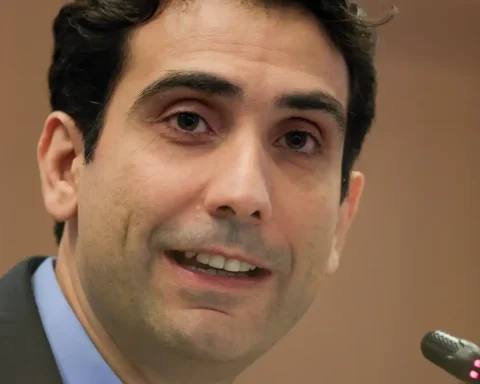The health reform continues to be one of the most important events of this semester’s legislature, but it also continues to consolidate itself as one of the greatest concerns for the actors of the system, because Articulation does not seem to solve the structural problems that are mainly affecting patients.
(Read: ‘We need spaces where health system actors have a voice’: Abbvie)
In the midst of the increasing pulse in the debate, which continues to be discussed in the plenary session of the Chamber in extraordinary sessions, a concept from the Congressional Legislative Technical Assistance Coordinating Unit, indicates that this bill should have been processed as a statutory law, but not as an ordinary law.
In detail, the document mentions that The reform regulates essential aspects of the fundamental right to health, Therefore, the points that impact should have the special treatment that the statutory legislature implies.
(See more: Despite technical warnings, the Government seeks to approve health reform in the Chamber)
“In conclusion, bill 312 of 2024 Chamber ‘By which the Health System is transformed and other provisions are dictated’ requires the character of statutory law, to the extent that it comprehensively, structurally and completely regulates the provision of health care. fundamental right to health for all people”explains the document.
Now, this would have immediate effects on the debate on the articles. According to the director of Así Vamos en Salud and former minister of the portfolio, Augusto Galán, A lifting by statutory law implies returning to point zero before Congress, because they would have to process the reform through the First Commission.
(Read: Andi estimates that the UPC should grow 16.9% by 2025, thus stabilizing the operation)
“This would also imply recognizing that this reform is causing modifications to the fundamental right to health and therefore changes of a constitutional nature.”, he indicated.
Plenary of the House of Representatives on health reform
Cesar Melgarejo – Portfolio
One of the feelings that health actors have had about the discussion of the articles lies in the “eagerness” that the Government has for this project to be approved. Although the future will have to be defined between today and tomorrow, for Galán, Specifically in this discussion, a series of contradictions on the part of the Government have been identified.
(See also: ‘Health at stake’: concerns about possible approval of the reform)
As mentioned, the Minister of Health Guillermo Jaramillo himself explained that this article underwent a series of modifications and changes, compared to the one sunk in the Senate in the last legislature, so in his opinion, That is one of the reasons why the document should be debated with greater analysis.
“ANDIt’s important to see what the implications are and if they really are fundamental changes. For that, parliamentarians need time. There is a precipice that is totally political in nature and in that sense, the contradictory thing is that having said the above, the Government has also indicated that this is a reform that has already been discussed”, he expressed.
(Read: Health collapse: former ministers and former vice ministers say that in 2025 it could be worse)
Additionally, he pointed out that this has been one of the arguments to say that this reform does not need “so much” debate, which is why it has already been discussed for more than a year. Although, “If so, this would mean that the previous reform that was shelved last April is maintained.”, he opined.

Health
iStock
Another point to explain is the role of the Constitutional Court in the framework of the discussion. Regarding this, the former minister stated that This body is waiting for the decisions made in the Congress of the Republic and will be pending whether or not any of these have constitutional implications.
(See more: Patients and health workers call for a sit-in due to crisis in the system)
“The Court will not rule before the law is approved in the Congress of the Republic. Once the decision has been made, it will begin to evaluate whether there were constitutional procedural defects, which could cause it to be declared unenforceable, that is, annul it, totally or partially.”he reported.
It should be noted that the different actors, including the Colombian Association of Scientific Societies (ACSC), have openly requested that the debate on the reform be suspended for the remainder of the year, and instead, open technical tables so that parliamentarians are aware. “not only of the shortcomings that the project brings, but also for the congressmen themselves to nourish the debate with possible proposals”.
(Read: Government would face operational challenges to assume EPS Sura users)

Health finances
iStock
Chamber Plenary
Although up to this point, only propositions and other provisions have been voted on in the plenary session of the Chamber, but not the project as such, Different congressmen have expressed their concern about the articles.
(Read more: EPS Sura assures that the difficulties of the health system have not yet been resolved)
Specifically, The defunding of the system, the deterioration in care and the pause in services are the key doubts in the discussion. Luis Miguel López, representative of the Conservative party, highlighted that before reforming the health system, the urgent thing is to guarantee the care of Colombians.
“There are thousands of lives at risk that cannot be abandoned by a leap into the void called “Reform.” What happens to the intervened EPS? The indicators are deteriorating, care is worsening and we have no response from the Ministry of Finance regarding next year’s budget for the health system.“, said.
Likewise, the issue of the Capitation Payment Unit (UPC) has been another reason for debate. In this, congressmen like Jennifer Pedraza highlighted that the system is underfunded and this health reform is “worse.” Well, up to $6.5 billion per year will be given to the EPS, for doing less, while the Adres are assigned more tasks and the budget is not increased.“the health business is maintained,” he denounced.
(See: Sura EPS responds to the Supersalud decision on its progressive dismantling)
Also, with respect to the UPC, Andi analyzed how much the growth should be in 2025 to begin to stabilize the current operation of the system and it was estimated at at least an increase of 16.5%. “If the UPC is not increased to sufficient levels, it is most likely that a health crisis will occur in terms of care and operation of the system.“, they indicated.

















